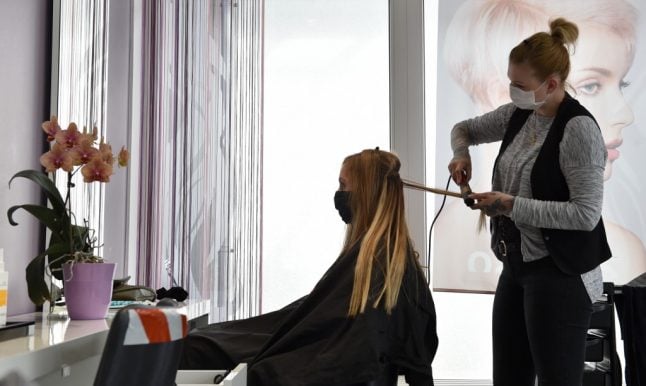The exact measures brought into effect on Monday were published late Sunday in the Official State Gazette (BOE) under the State of Alert measures and these include five main changes.
Compulsory Face Masks

While face masks have been highly recommended in those conditions where it may be difficult to apply social distancing rules of keeping 2 metres apart, the government has taken it a step further and made them mandatory for all those travelling on public transport.
That means if you are planning a journey by bus, metro, train or even plane or ferry then you must wear a mask. They must also be worn inside private vehicles when the passengers are not all members of the same household.
Spain's government said it will distribute six million across the country's main transport hubs from Monday and supply another seven million to local authorities.
A further seven million masks will be given to the Spanish Federation of Municipalities and Provinces (FEMP) and 1.5 million to various charities such as the Red Cross, Cáritas and Cermi.
Sánchez's government already launched a massive distribution plan of masks on public transport on Monday April 13th to coincide with the end of the lockdown period for non-essential economic activities.
Fernando Simón, director of Spain's Centre for the Coordination of Health Alerts and Emergencies, said last Wednesday that the use of face masks among the general population was “highly desirable” and “highly recommended” but that he wasn't in favour of making it mandatory.
READ ALSO:
- Bar terraces in Spain will be allowed 50 percent capacity from May 11th
- Spain makes masks mandatory on all public transport
- Spain outlines new rules and time slots for leaving the house from May 2nd
Vehicle occupancy

The rules for being on the road have been updated. Until now private cars have been limited to just the driver except for special circumstances but from Monday May 4, those private vehicles with up to nine seats can seat two people in each row to ensure maximum space between them.
Buses and train carriages have had their occupancy reduced to 50 percent of seated passengers and when standing that there be just two travellers per square metre.
Small businesses reopen

Certain commercial premises – locales as they are known in Spain – will be allowed to open from Monday as long as they offer private appointments booked in advance and are smaller than 400m2.
This includes hair salons which will be open on a one-to-one basis and appointments must be made within the allocated time slot depending on your age.
Masks must be worn if it is not possible to keep 2 metres apart, customers will not be allowed to use the bathroom and the premises must be disinfected twice a day.
Businesses must make hand santizer available to all clients.
Restaurants

Since lockdown was imposed on March 15, certain restaurants have been allowed to remain open if they offer a home delivery service.
From Monday restaurants can also offer take away, to be collected by customers, provided certain safety conditions can be met. These include orders being taken in advance to avoid crowds and putting workers behind a protective screen when dealing with customers.
Hand sanitizer must be available at the door to the premises and the restaurant must provide bins that can be opened without touching the lid.
Building renovation

Home ‘reformas’ as minor building work is known in Spain can restart again from Monday as long as the workers can keep a distance from each other and other residents in the building. And as long as the premises is empty and the movement of workers through communal areas of a building is limited.
Professional athletes

Athletes regarded as from“high-performance” sports by Spain’s Superior Sports Council will now be allowed to train individually in the open air.
This means that they can access natural areas that are required for their activity depending on the sport, such as the sea, rivers or reservoirs. Unlike for others who are limited to one hour of exercise per day, there is no limit on training times and athletes can be accompanied by a coach.
Other athletes affiliated with clubs are allowed to train individually in the open air twice a day between 6am and 10am and between 8pm and 11pm, as long as they remain within their own municipality.
READ ALSO:



 Please whitelist us to continue reading.
Please whitelist us to continue reading.
Member comments